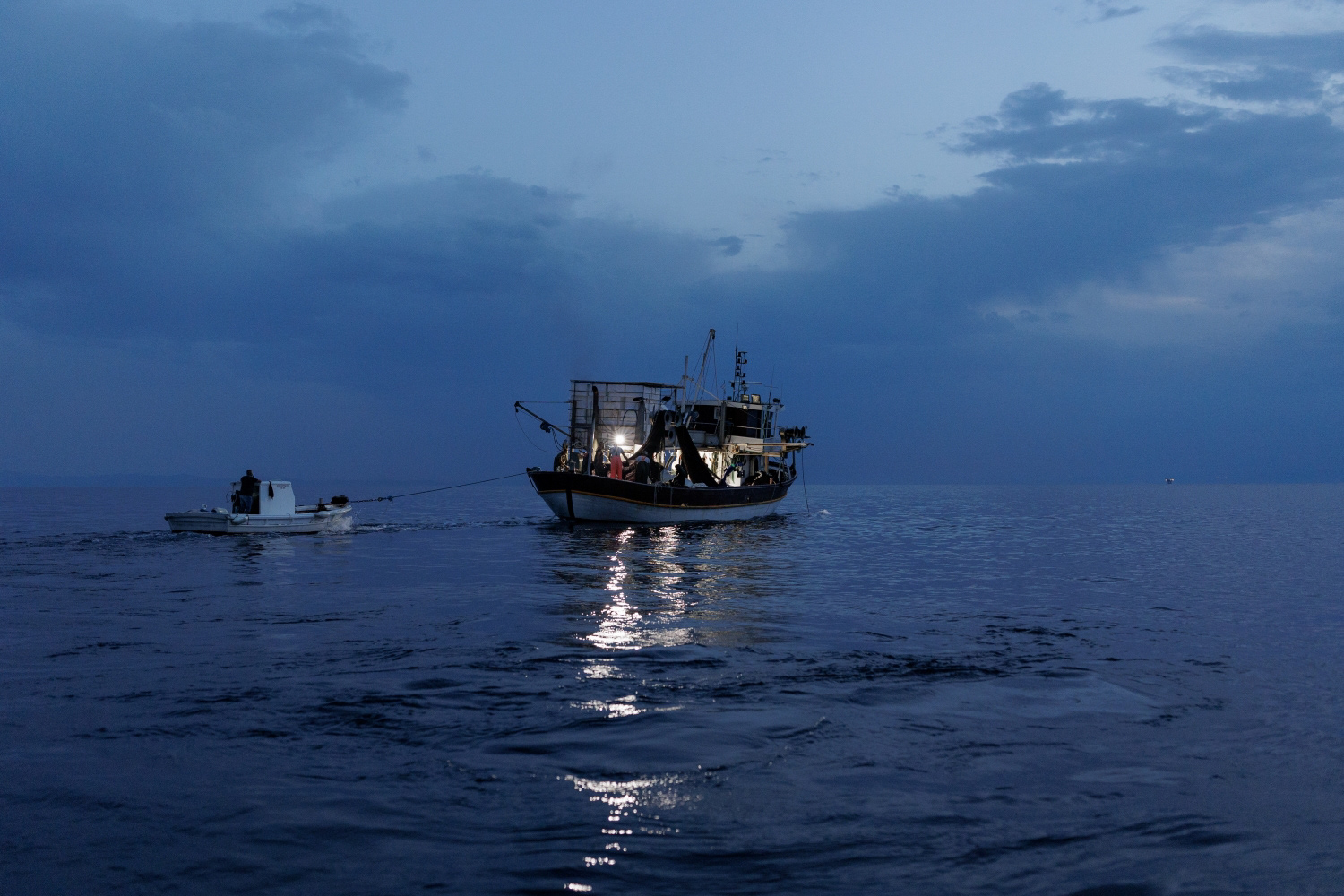

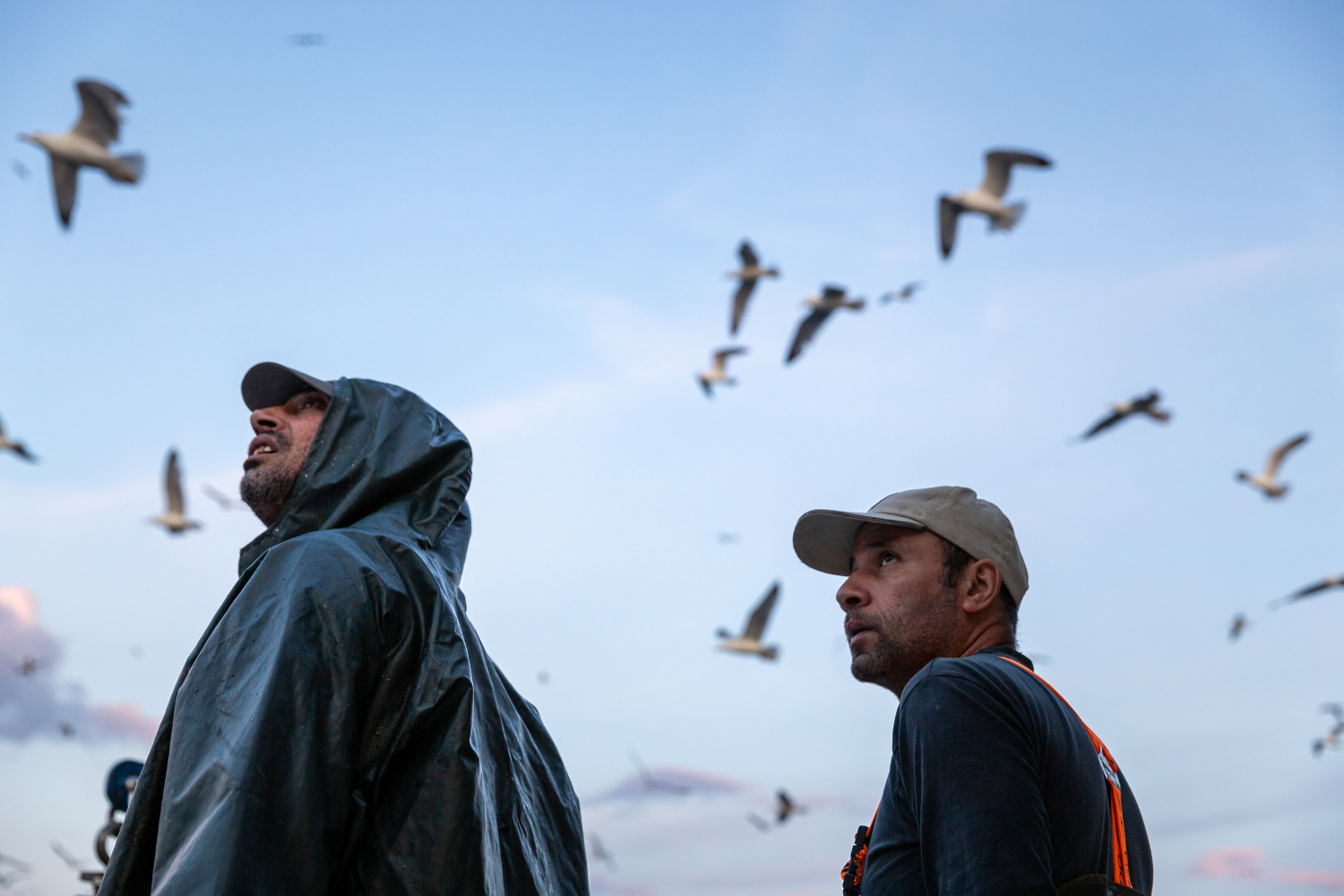

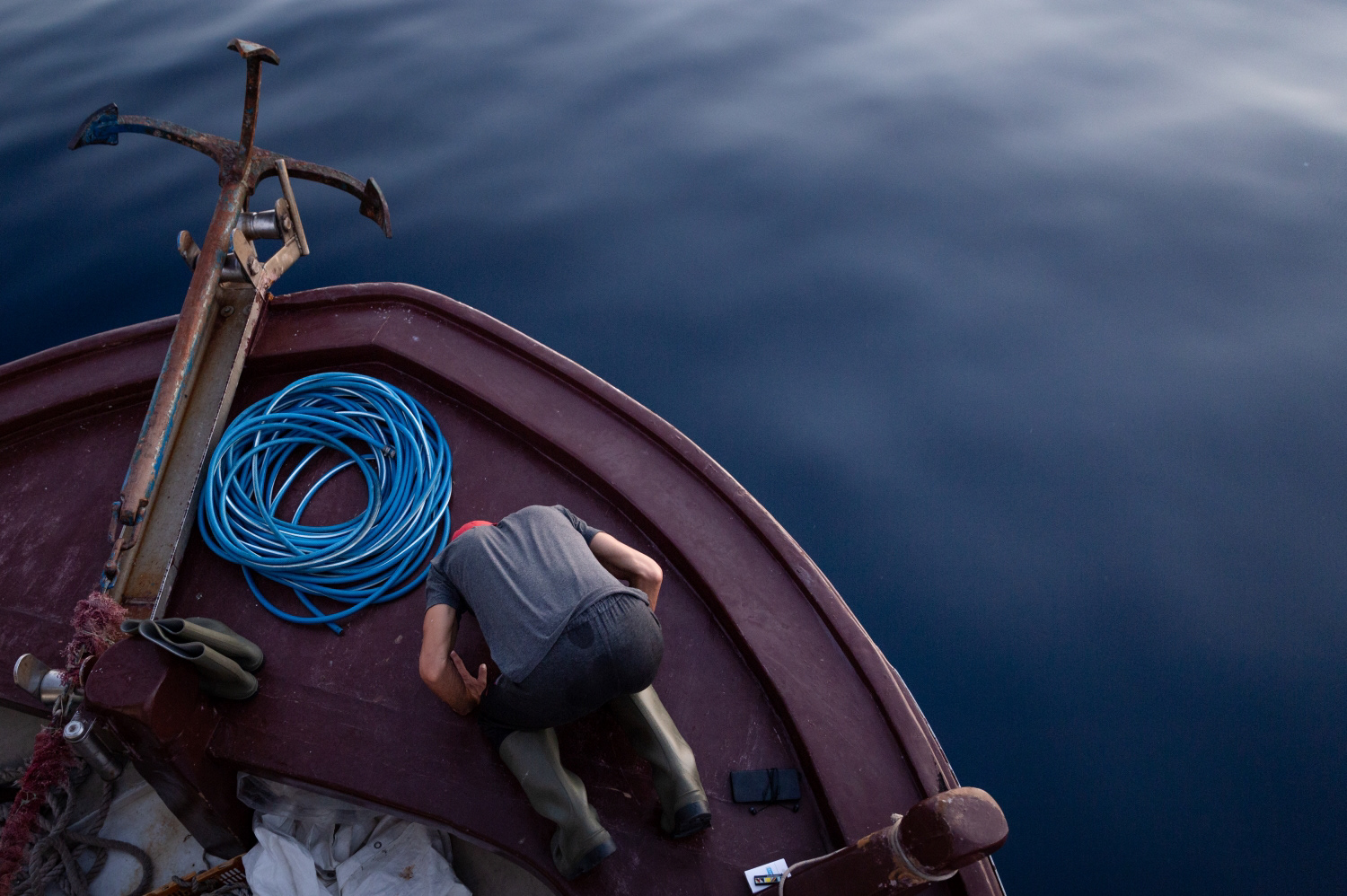

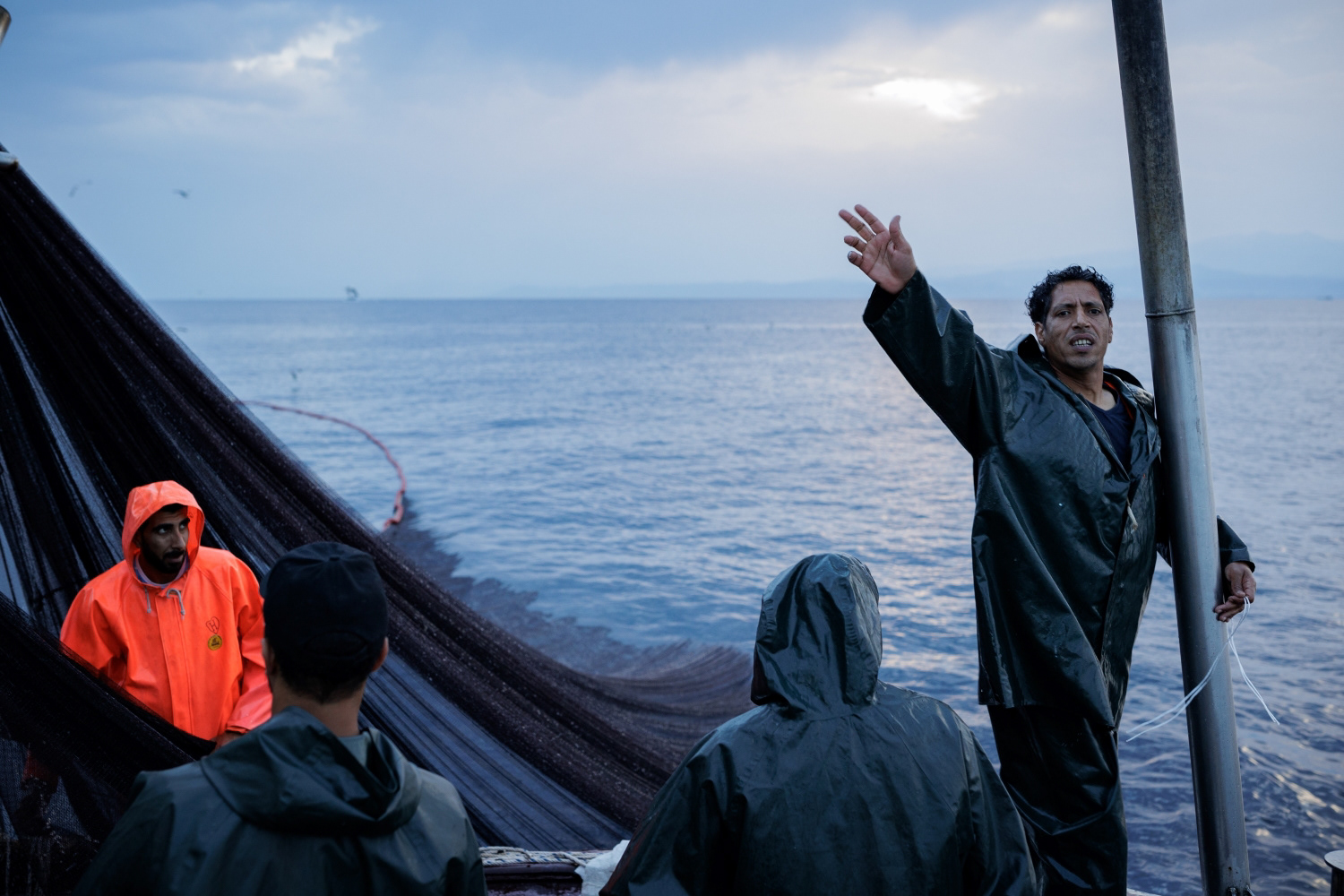
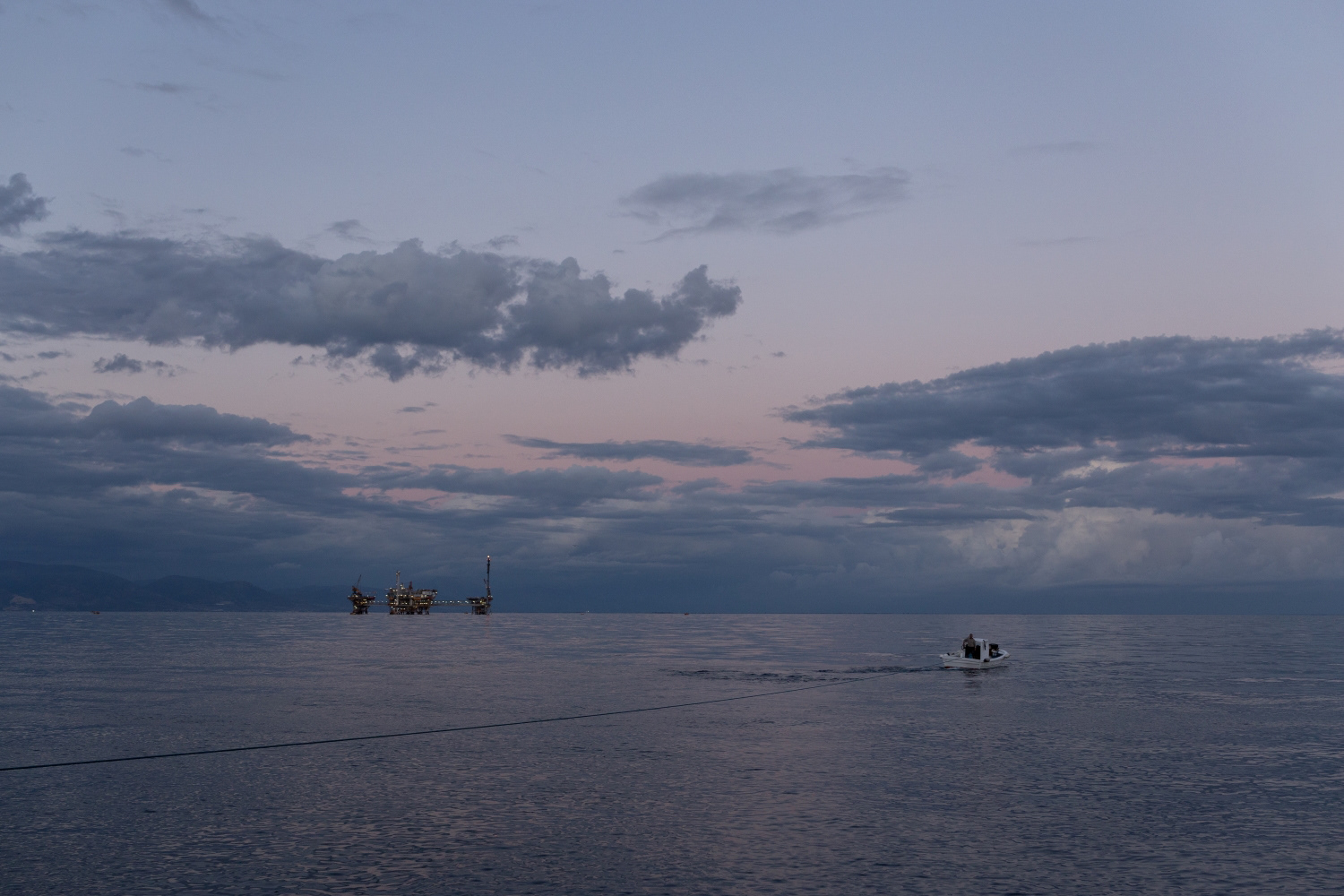
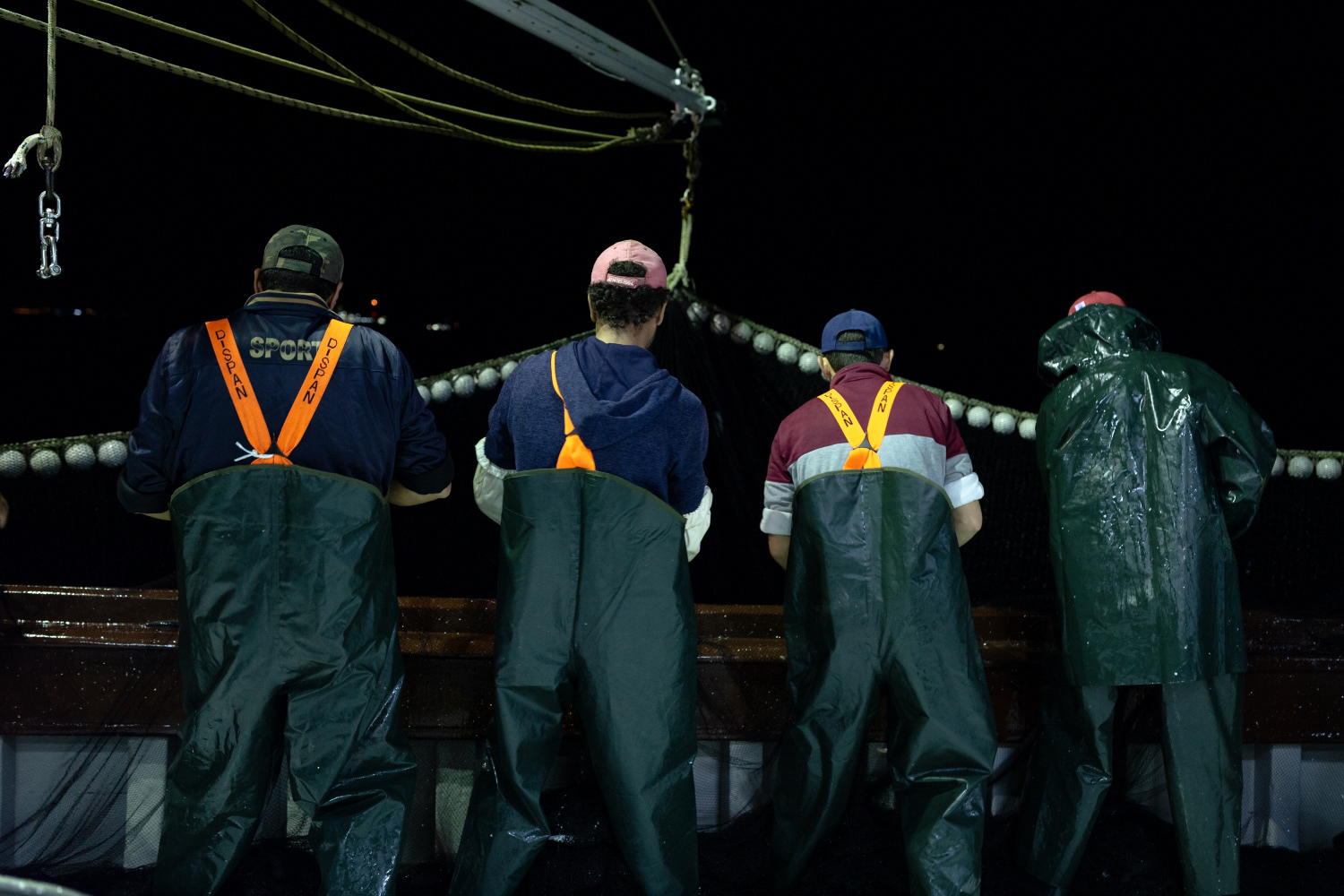
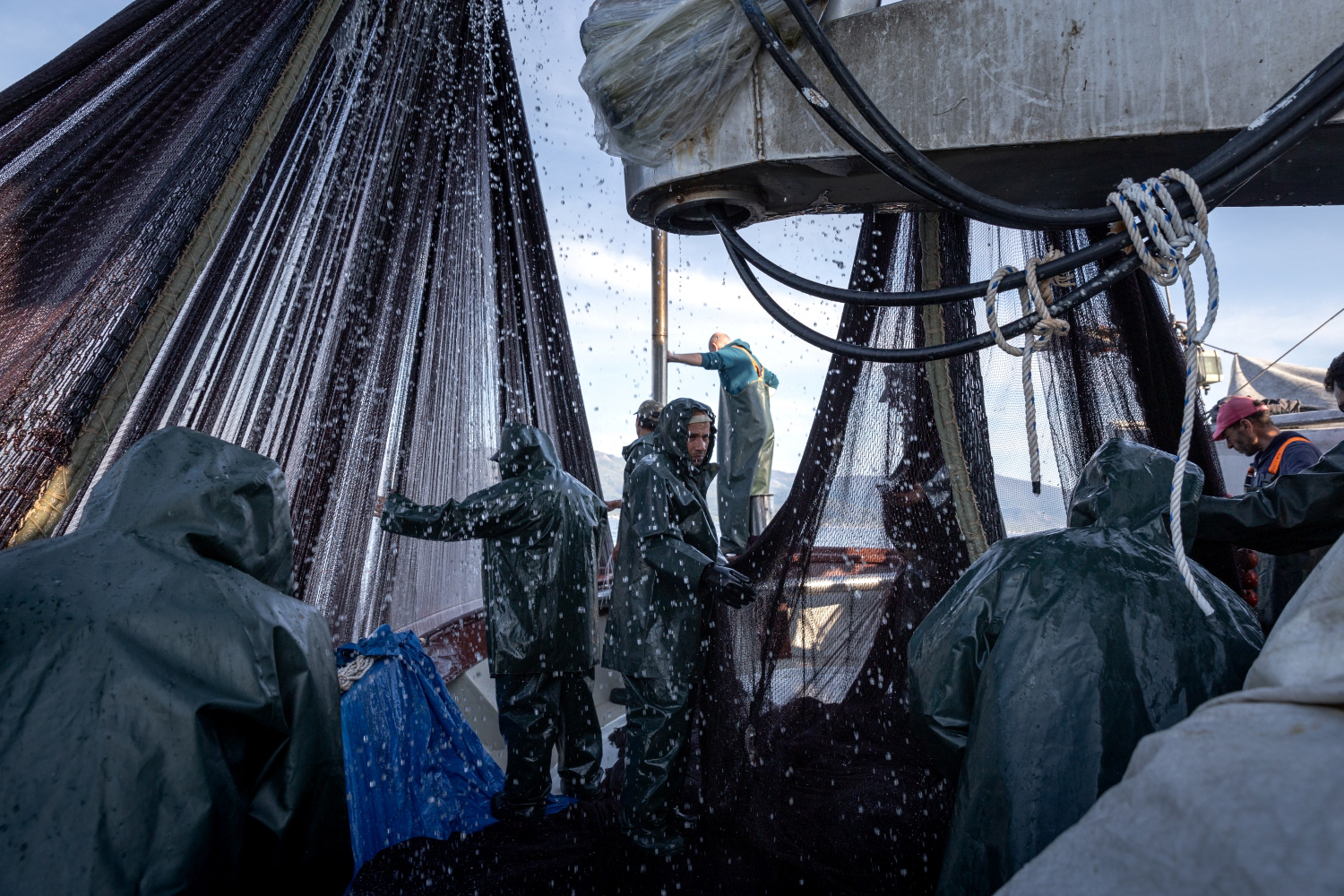
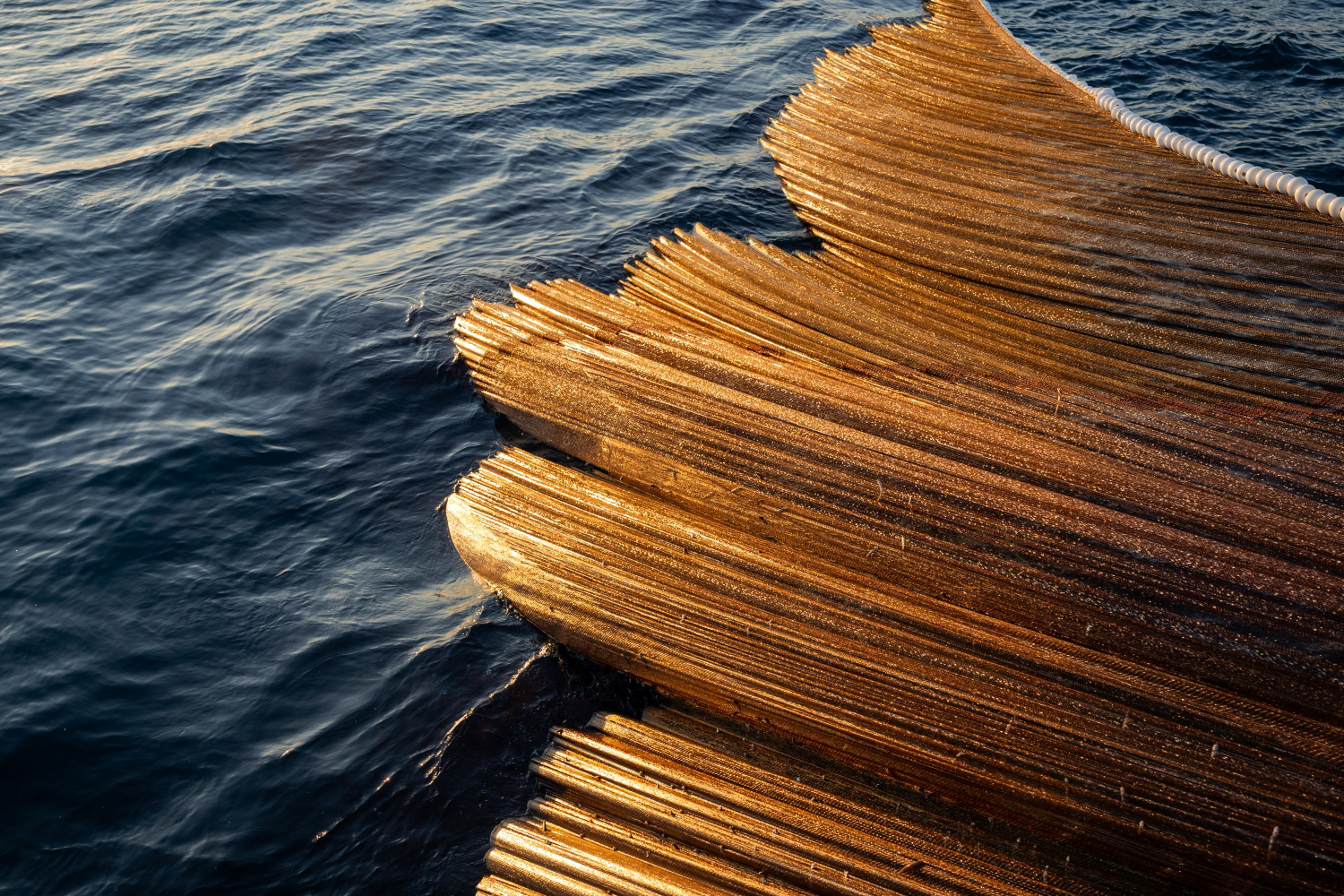


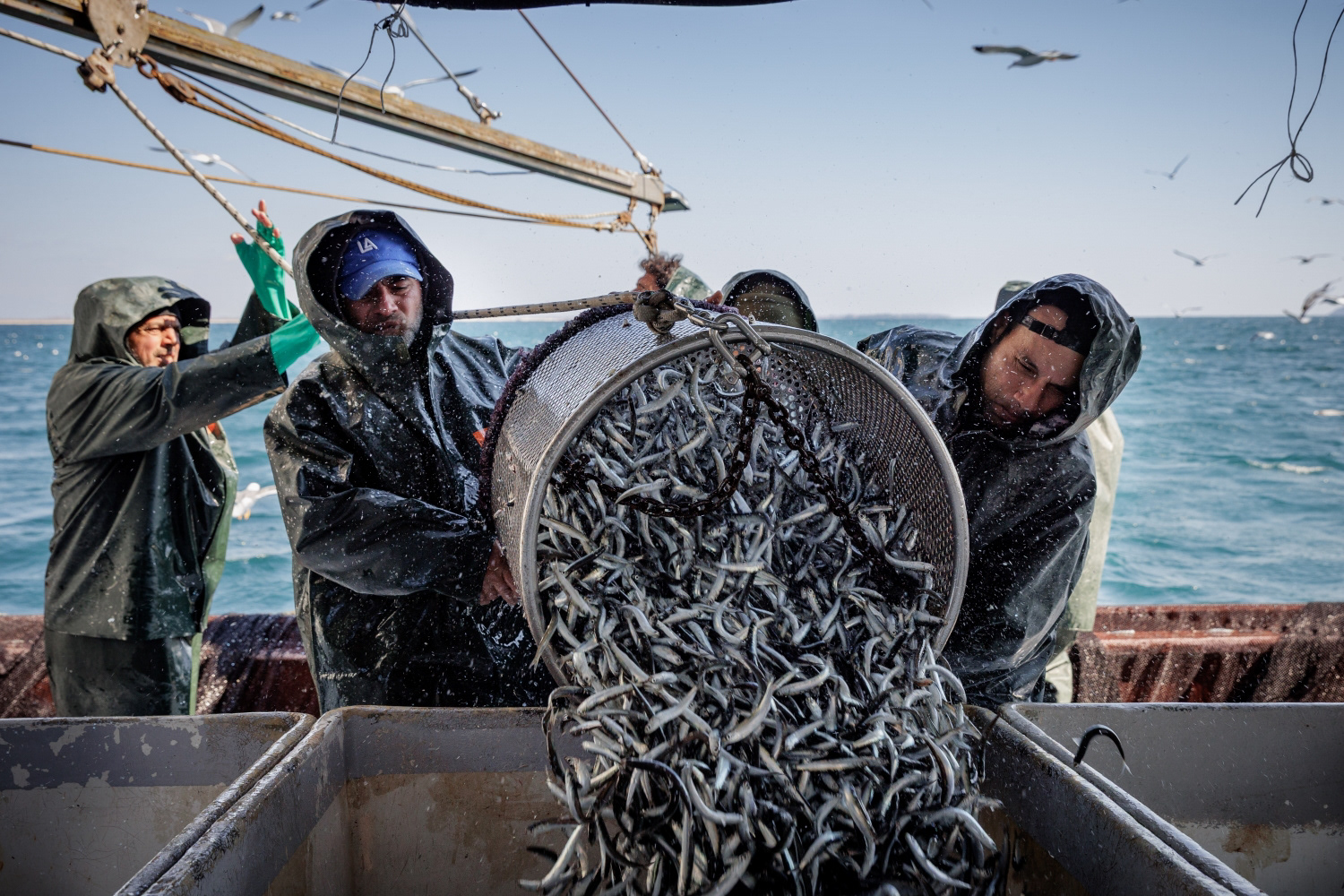
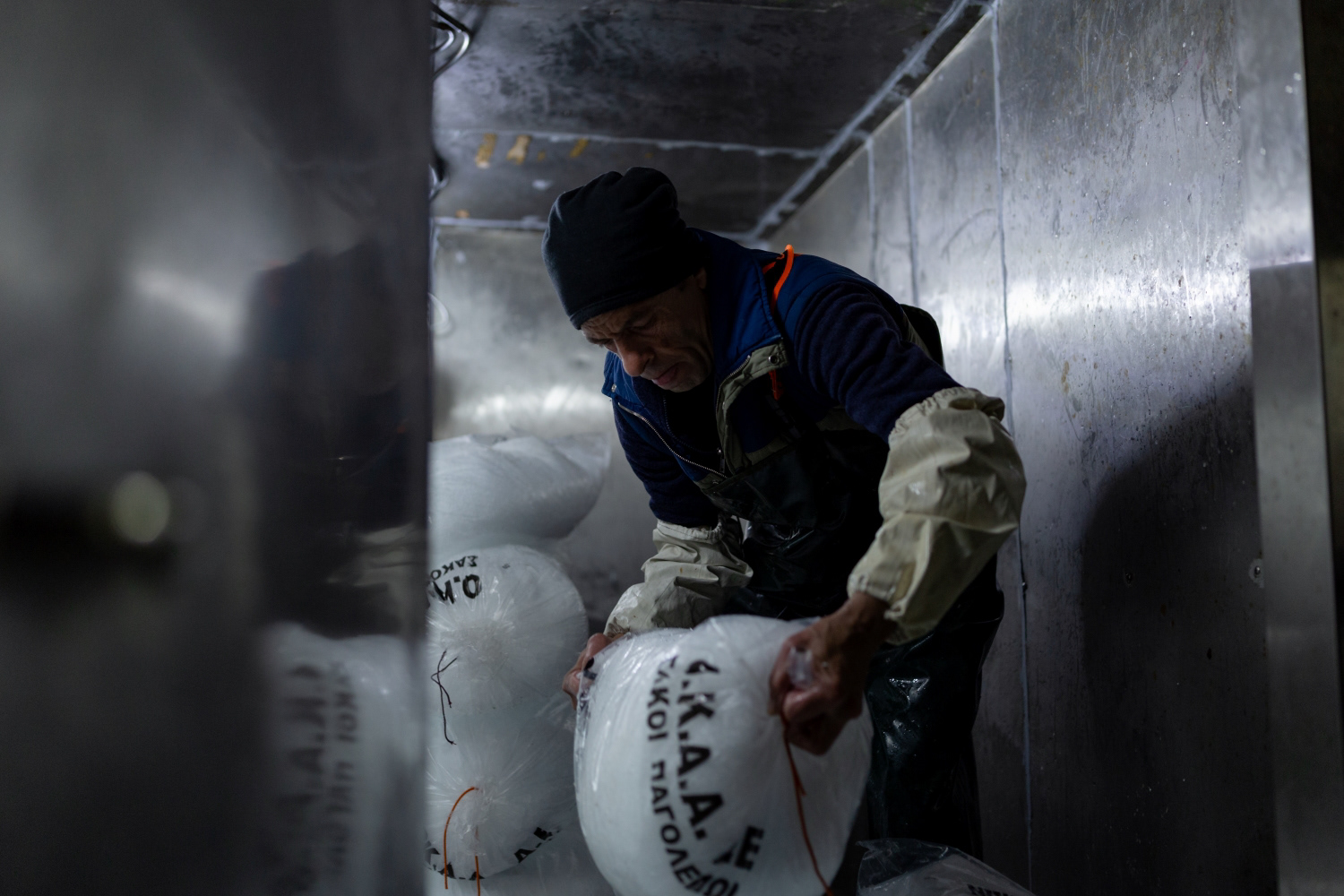
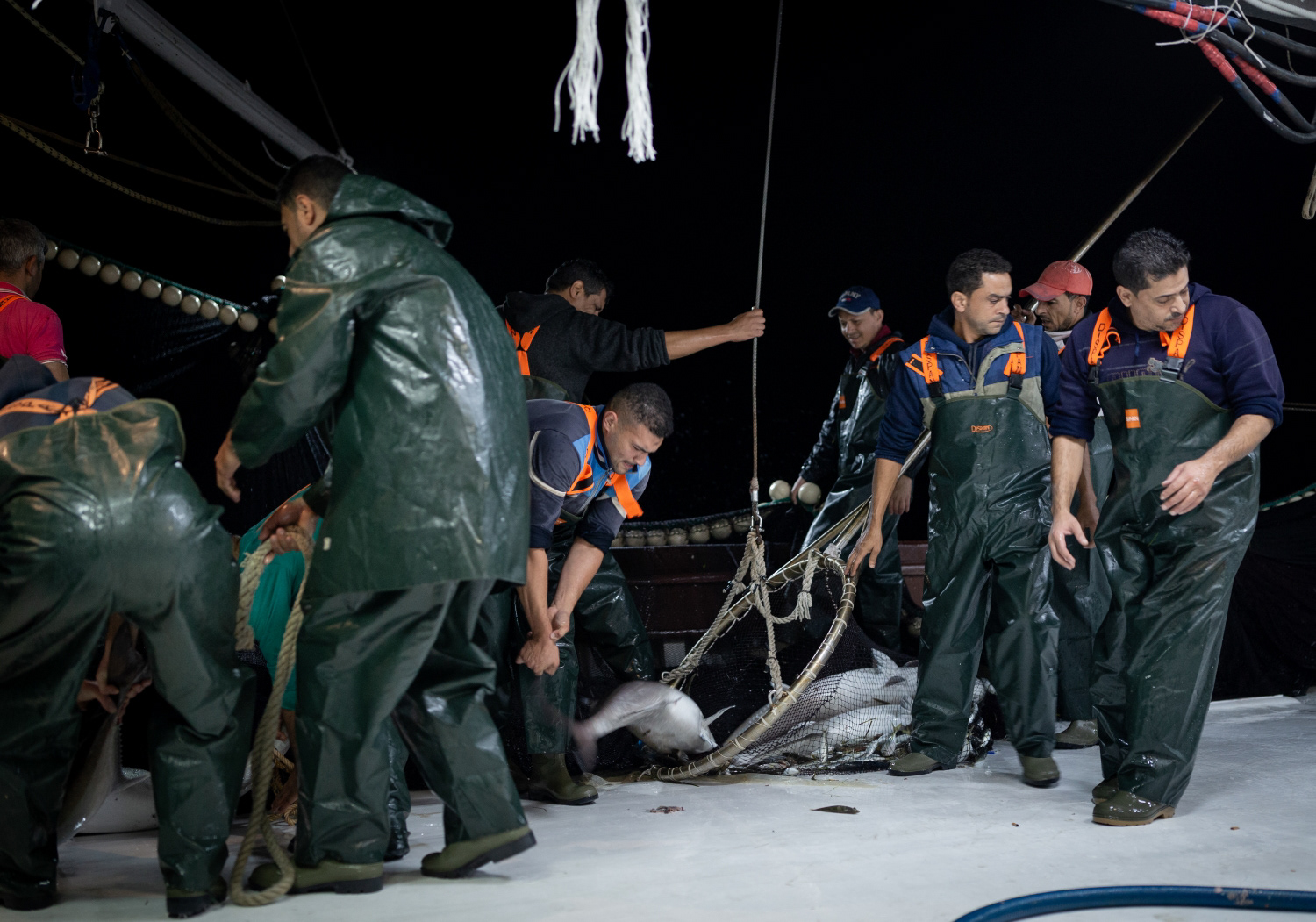
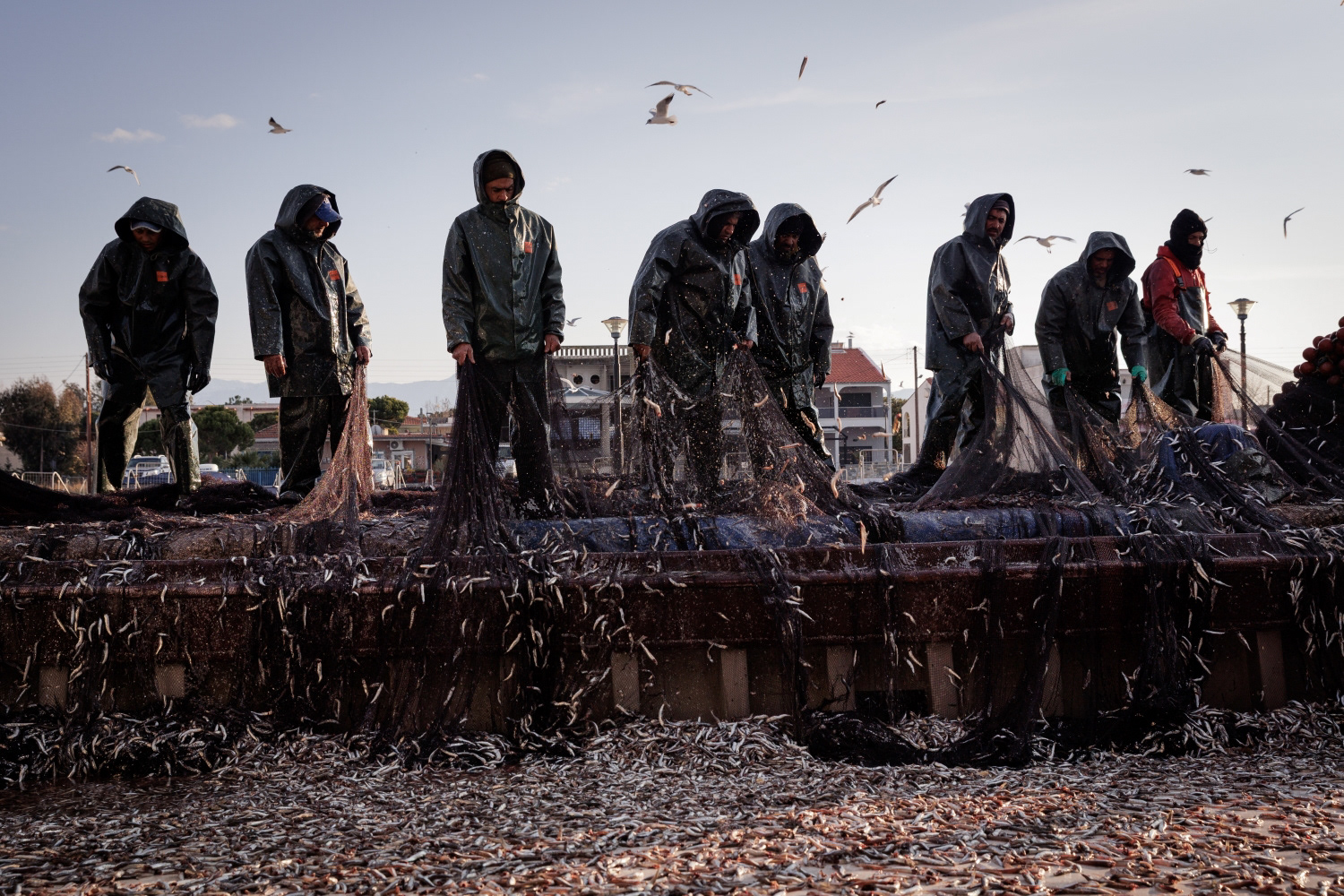
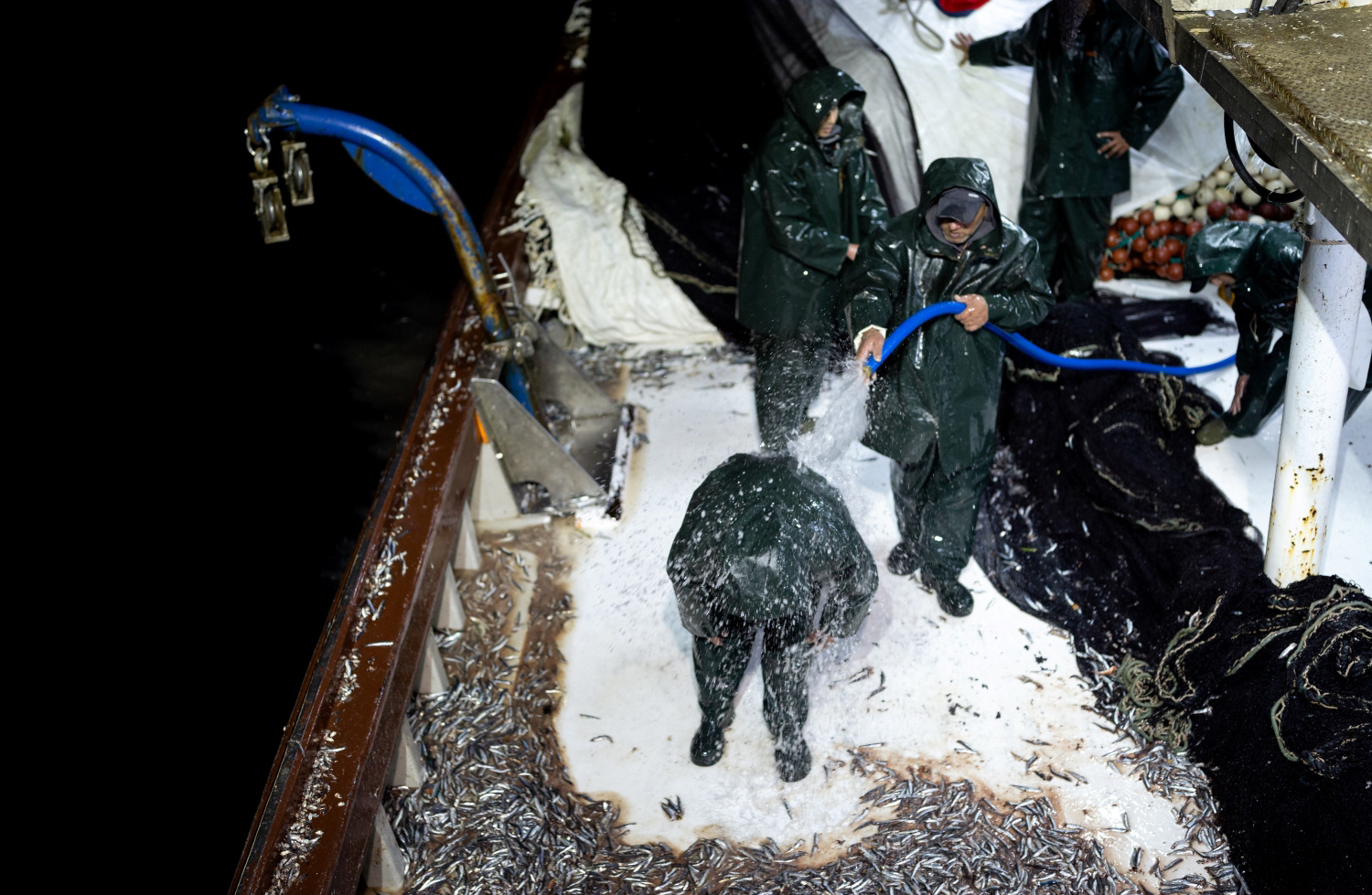

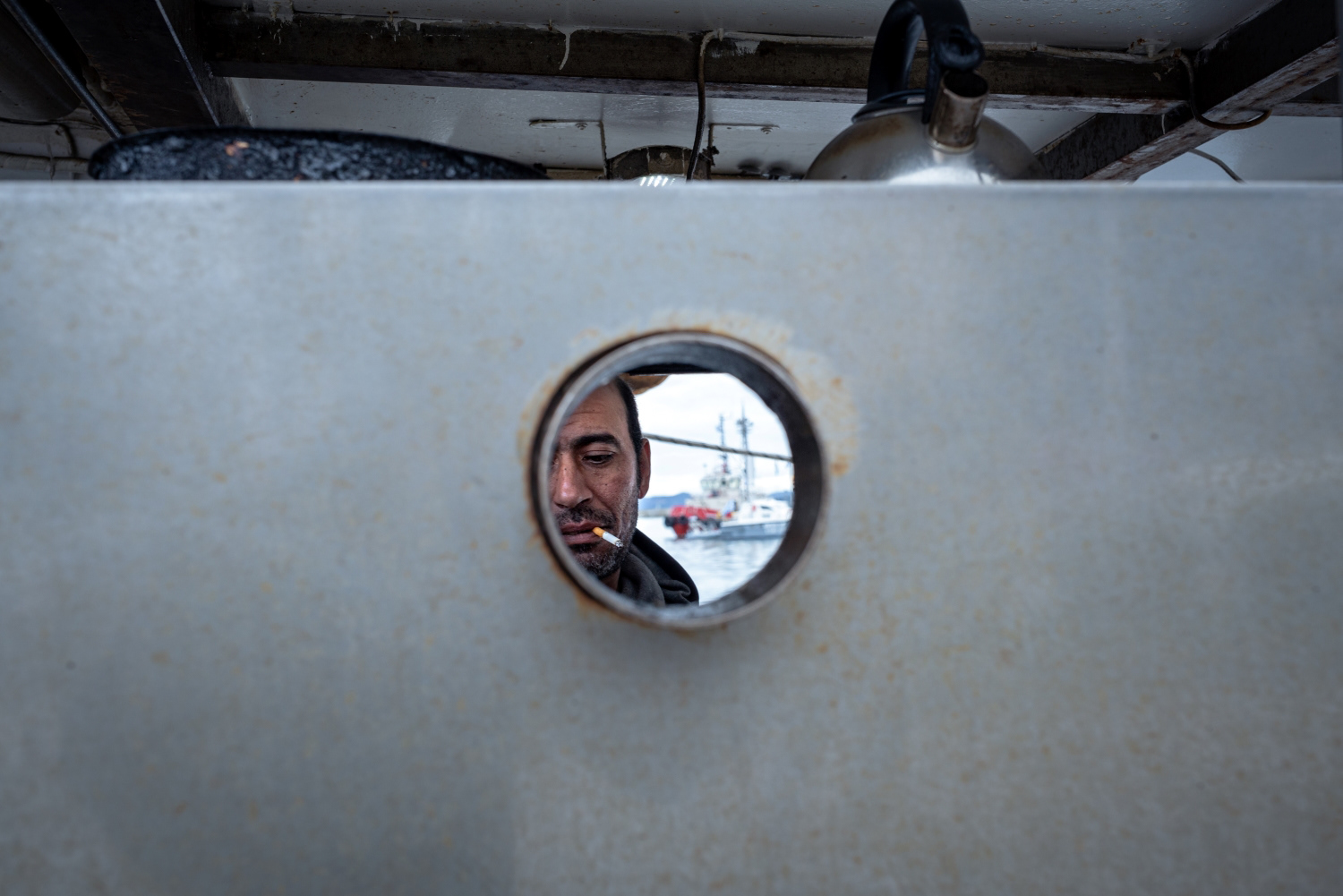
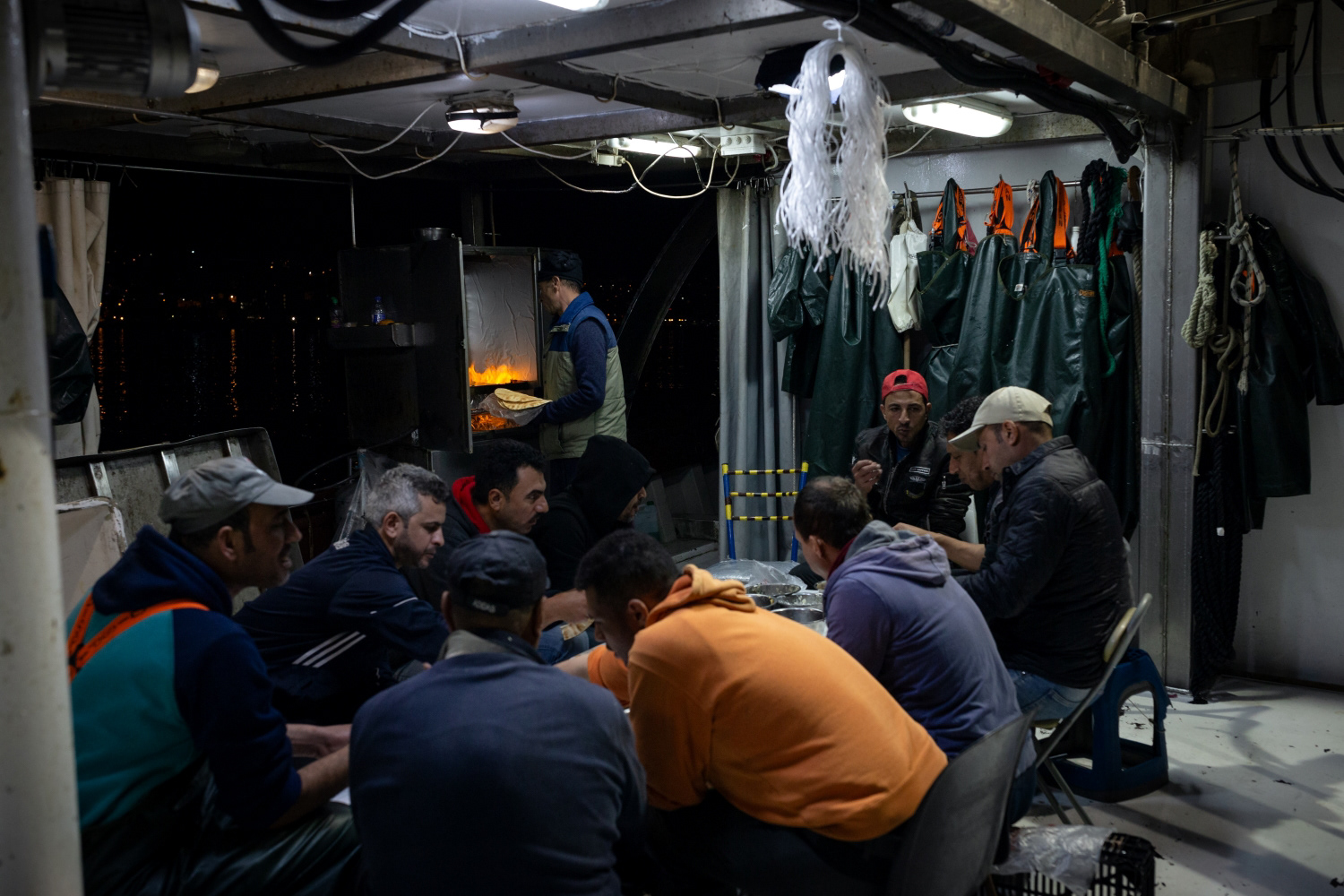
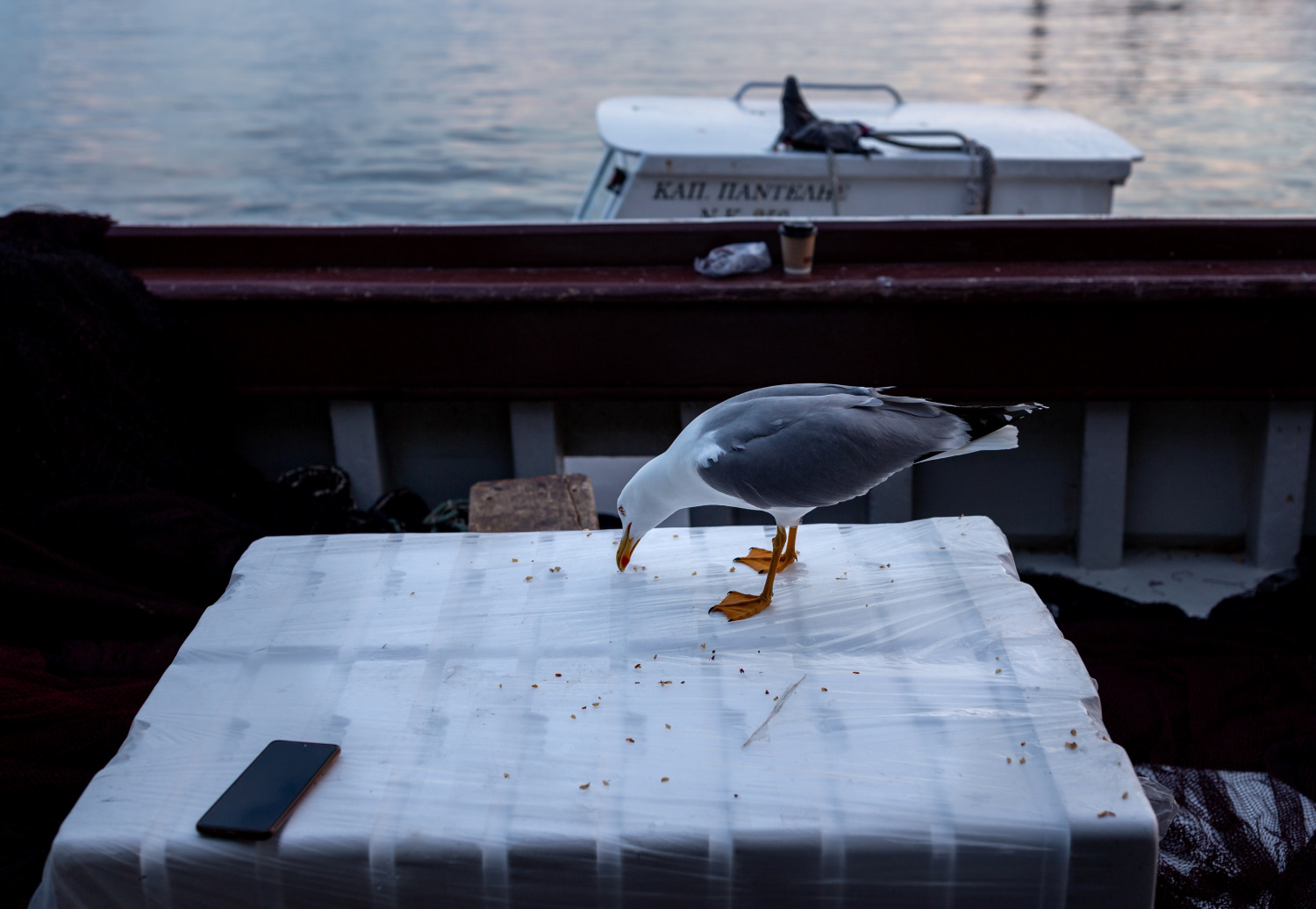
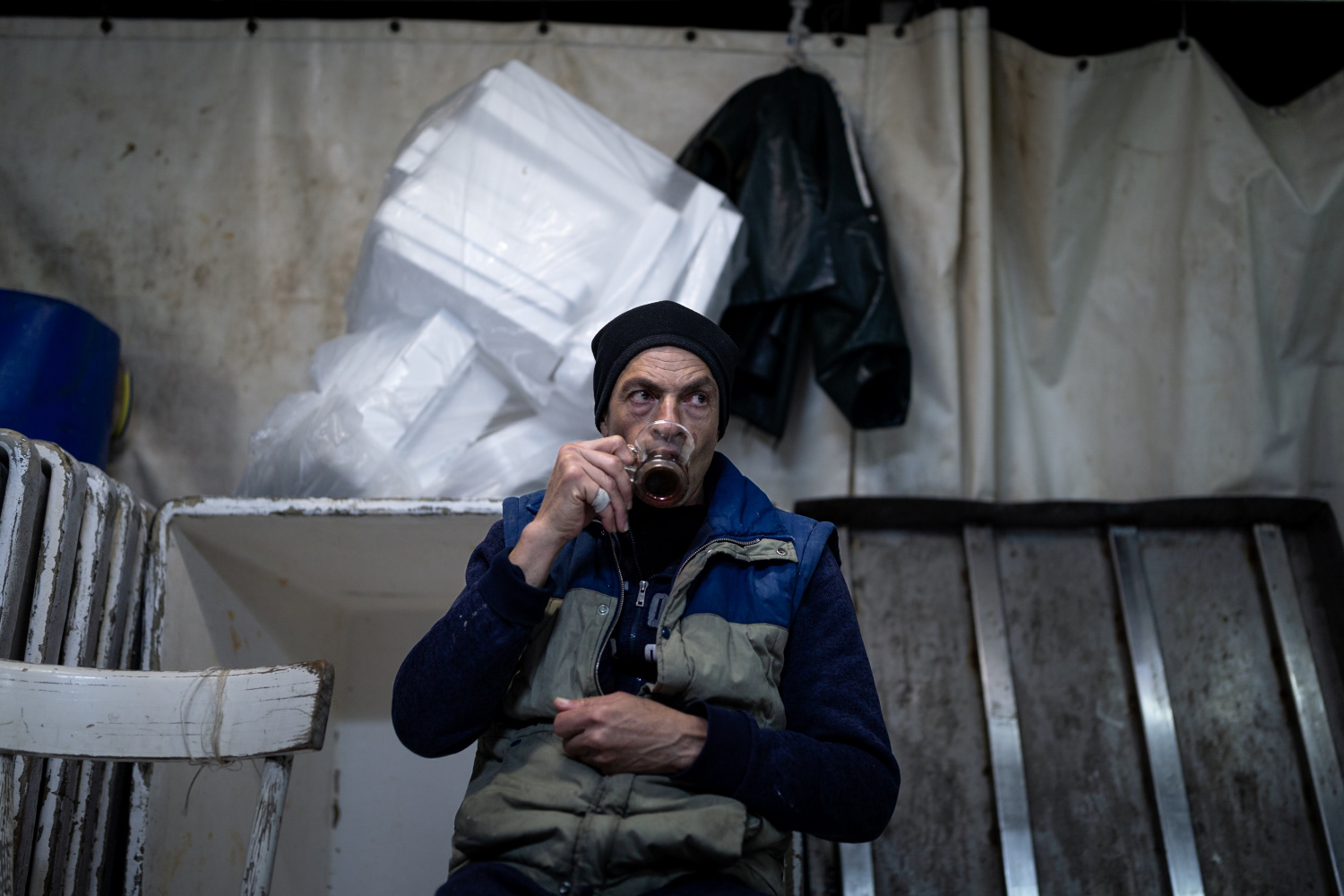
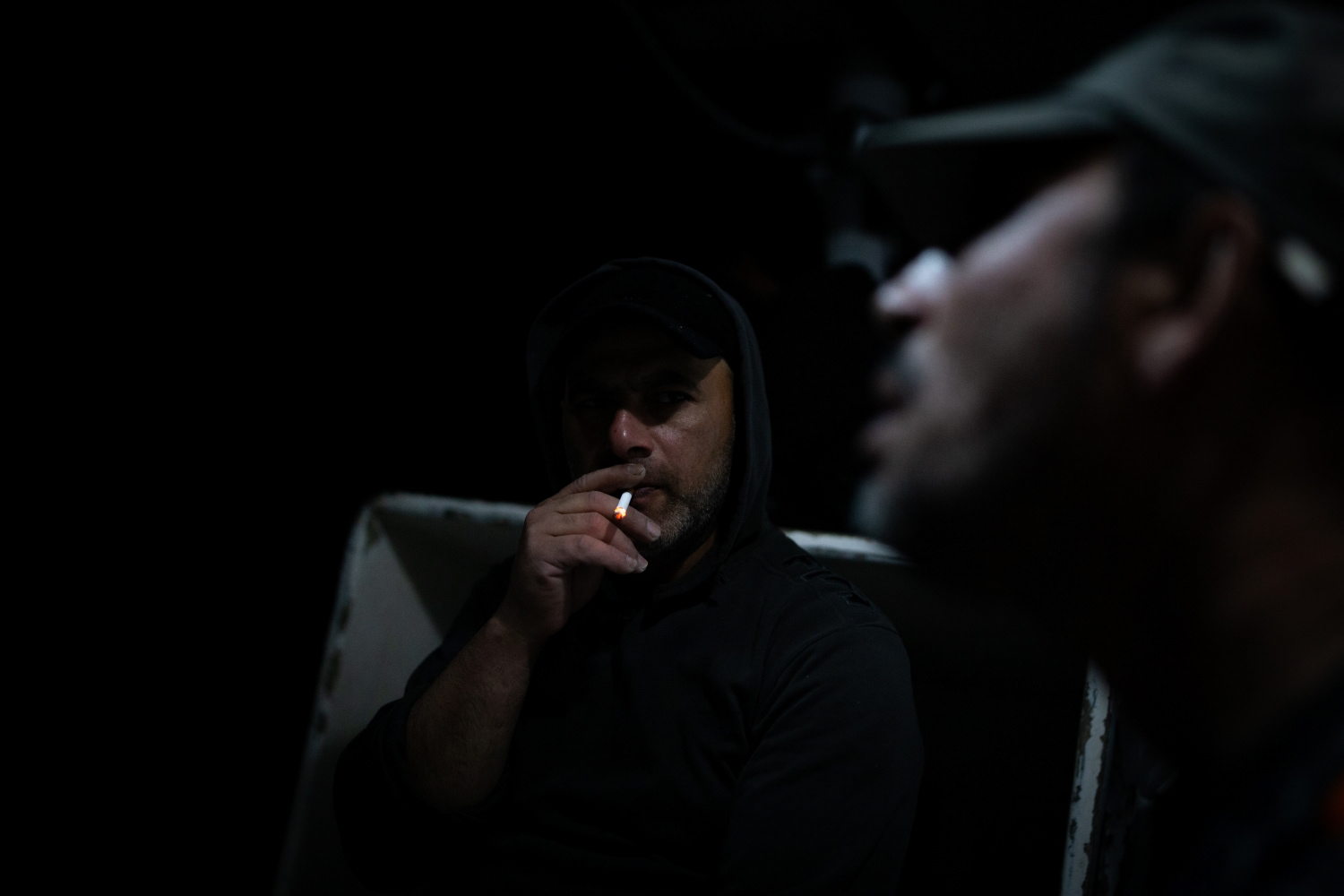


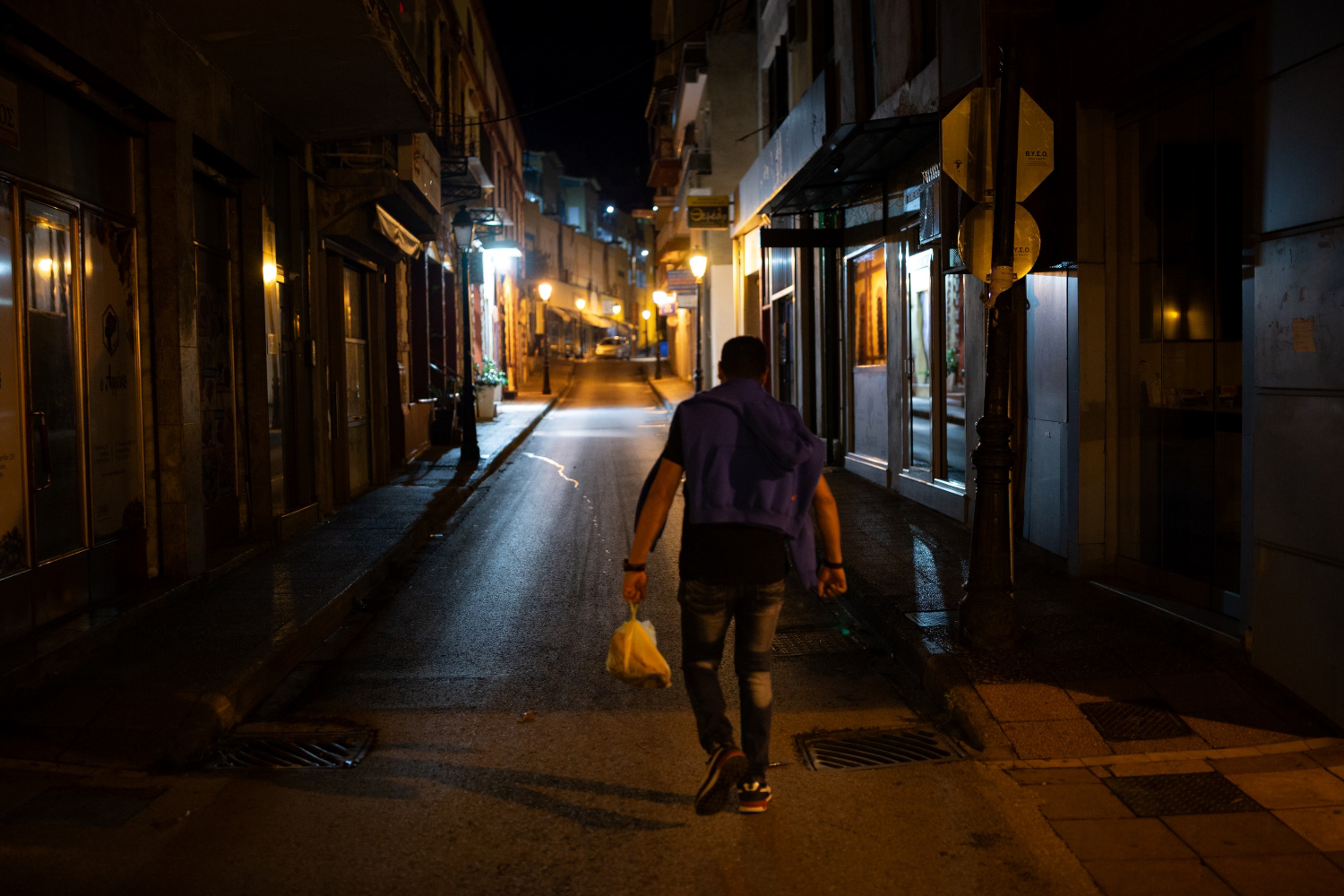

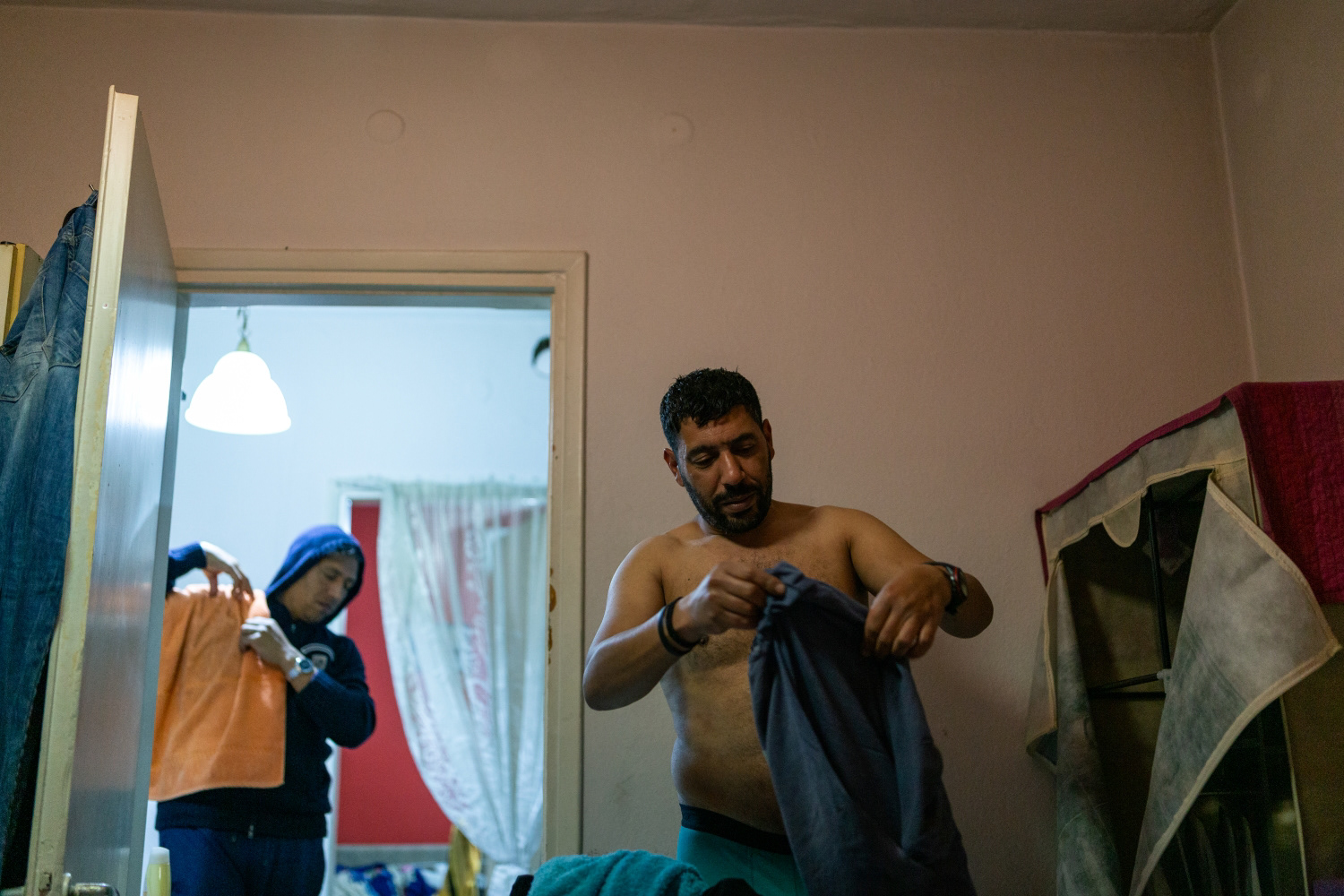
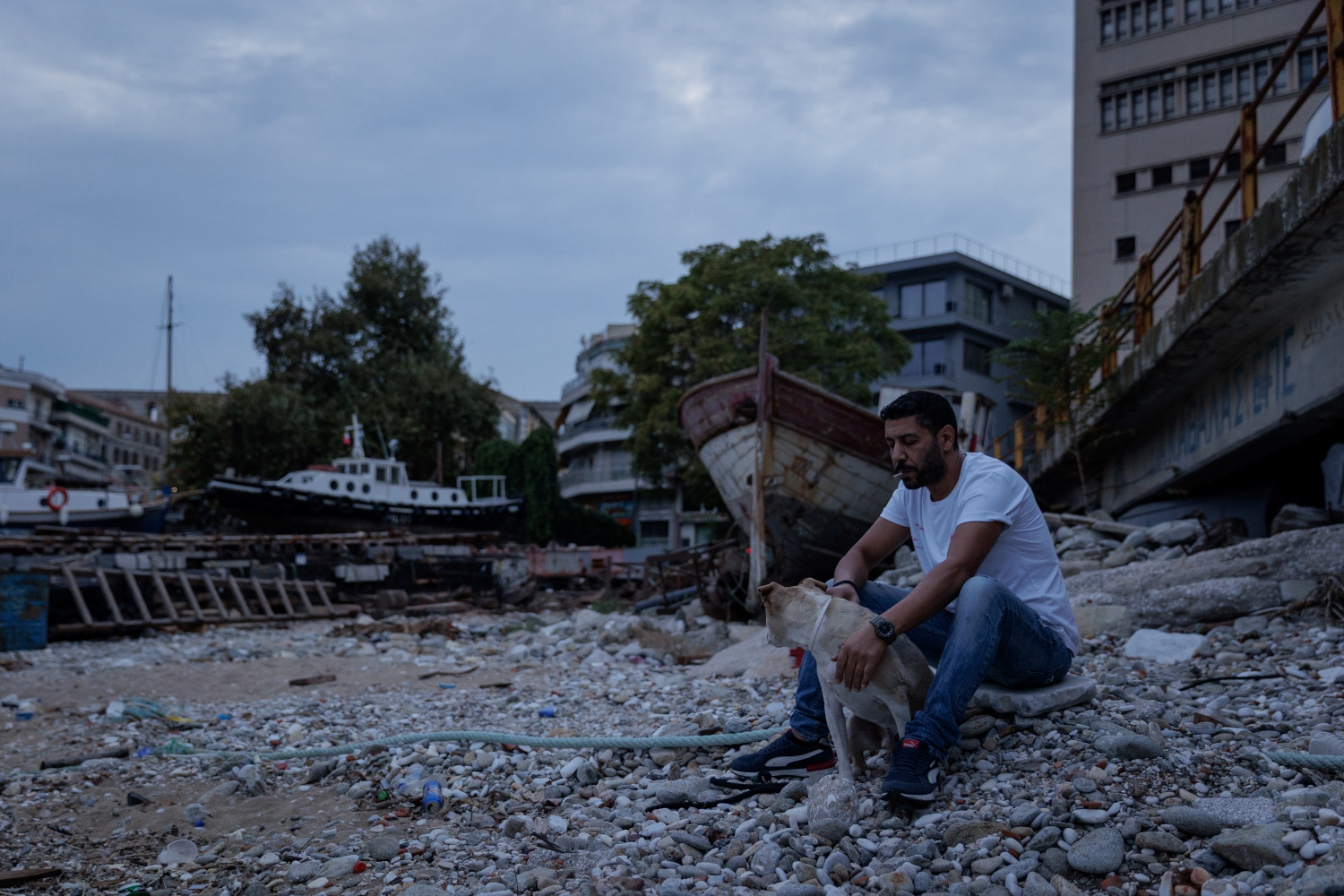
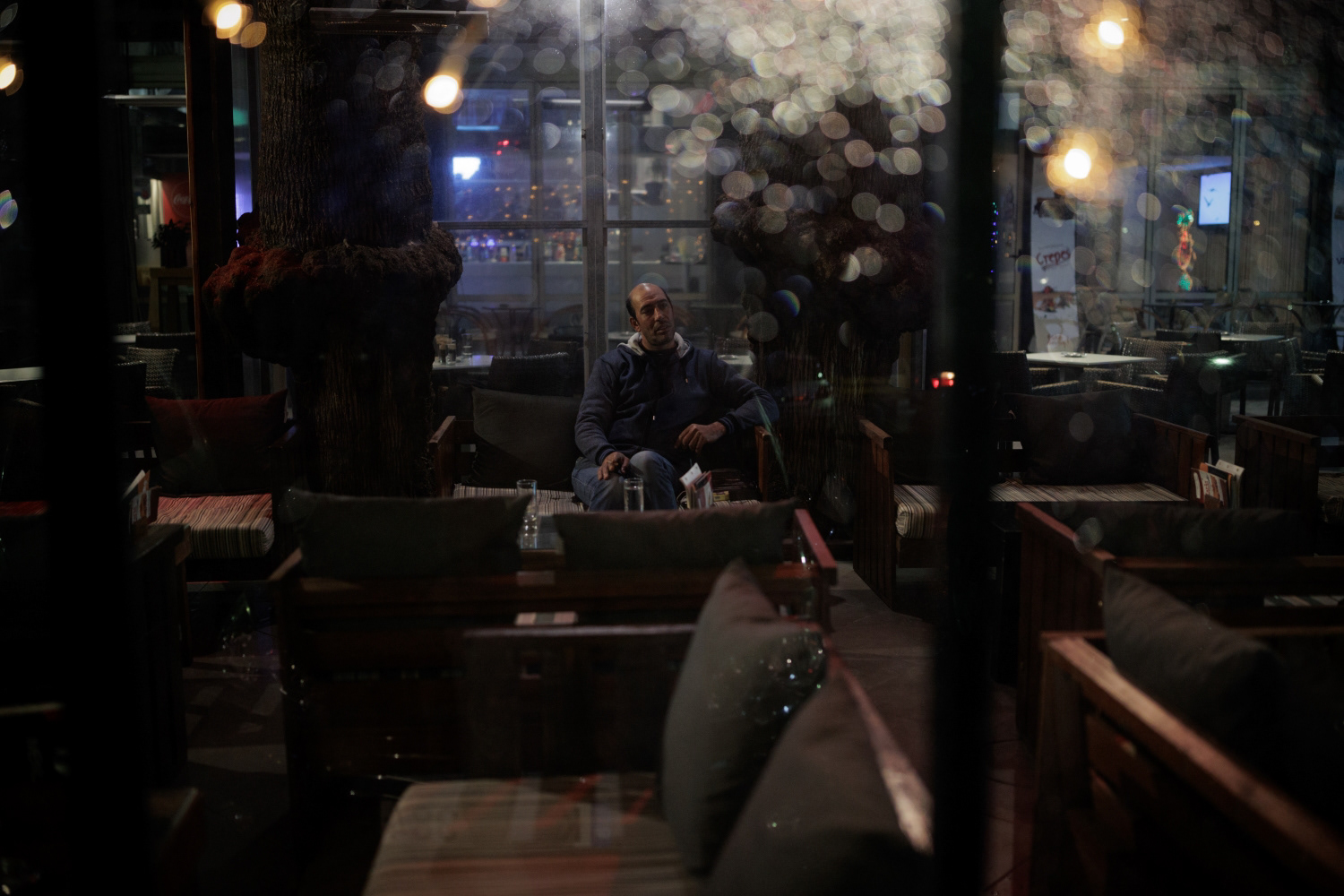
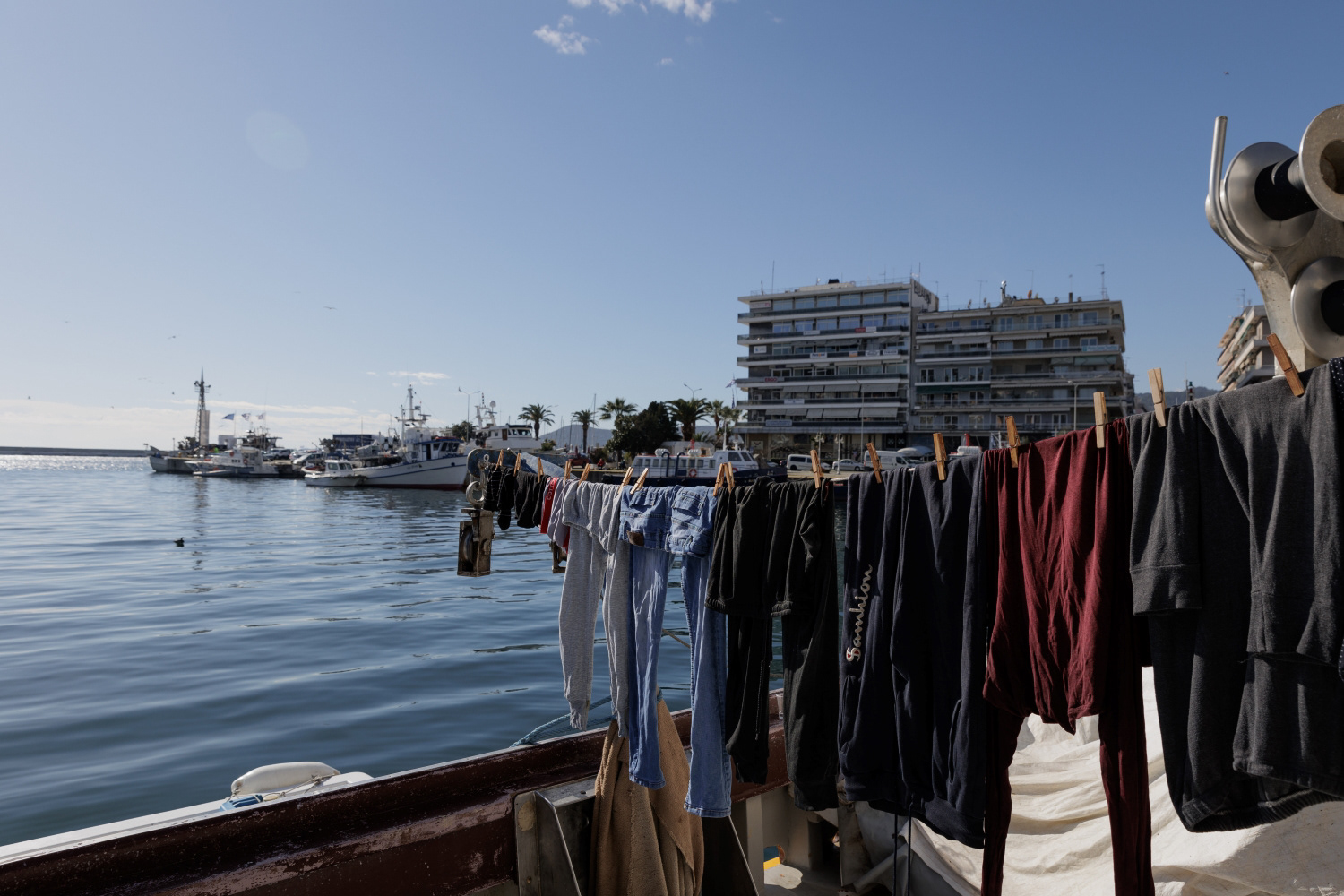

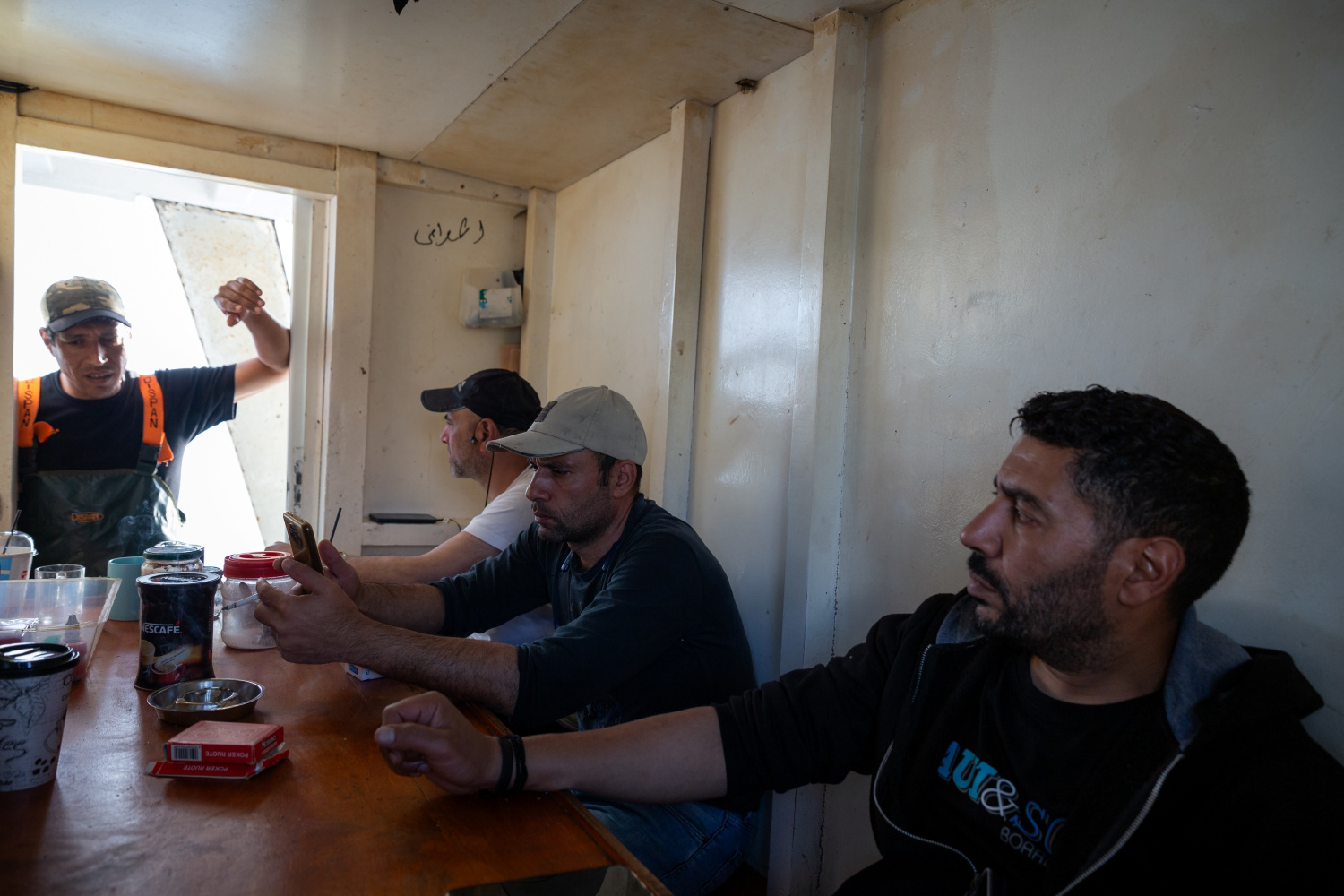
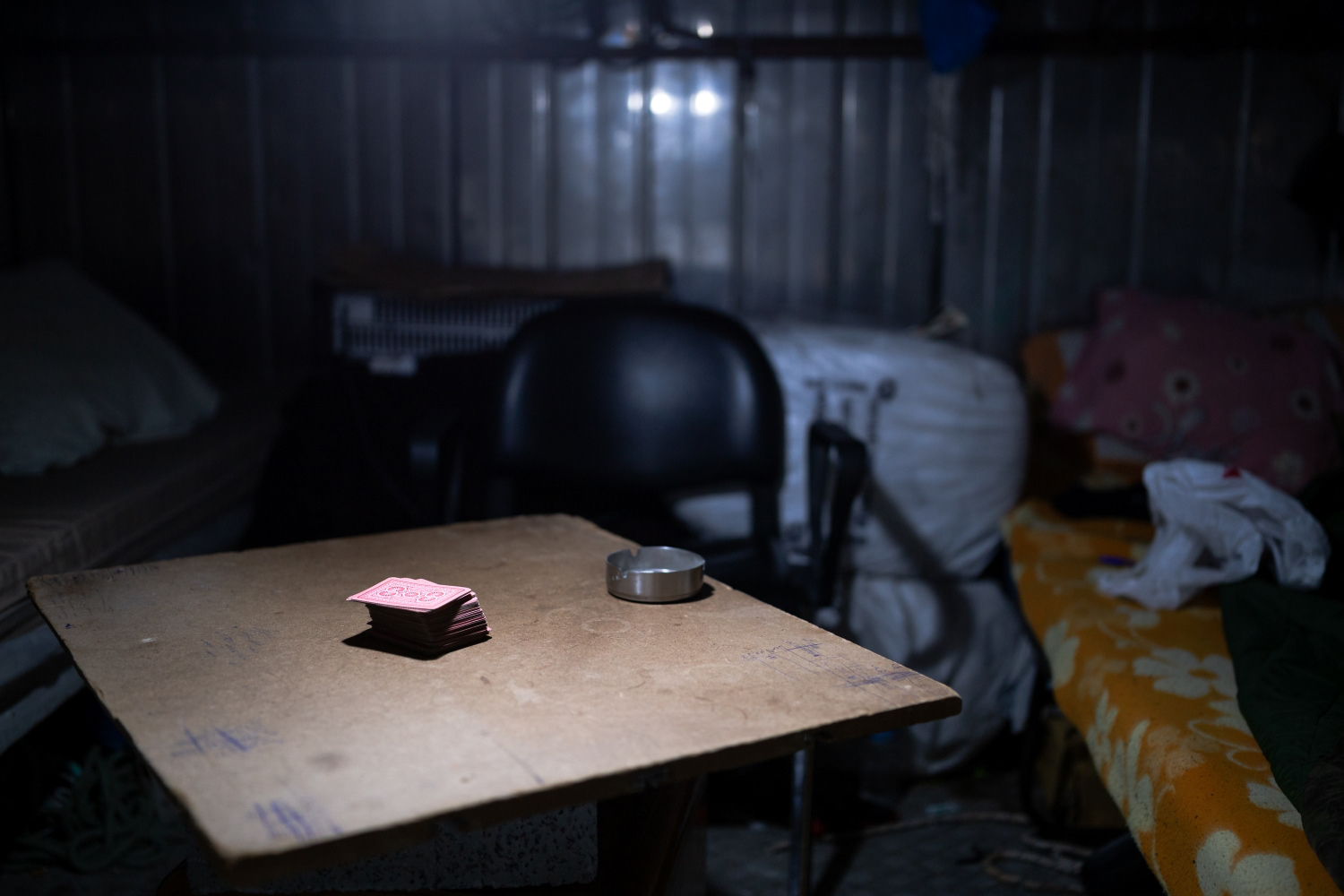

The nautical term "Molla" is derived from the imperative of the Italian verb "mollare", which means "to let go". It has been used throughout time in the everyday life of fishermen before they start fishing. Egyptian fishermen live and work among the local fishermen in Greece, but for them this word takes on another dimension. In 1984, a special contract was signed between Greece and Egypt for the transfer of Egyptian employed fishermen to Greek vessels. When the number of Greek fishermen fell dramatically in the 1990s, the presence of the Egyptians came to fill the gap. In their homeland, although fishing was their main occupation and means of their livelihood, overfishing emptied their seas and rivers, resulting in increased migration to other countries in looking for work. Greece was and remains a dream for many of the Egyptian fishermen. They are considered the best in their job in the Mediterranean, having also gained the reputation of the most cooperative employees at the Greek boats. The experts on the field know that without the Egyptians we all would be eating frozen fish. The life of the Egyptian fishermen in Greece is mainly “work-work-work”. When they do get some time off, they communicate with their families back home, who they usually see once a year for only a few days. Most of the Egyptian fishermen have large families who make a living with the money they send to them, while they themselves live in the hold of the boat. Some who have lived many years in Greece, rent houses, usually in poor condition. The relationships among the Egyptian fishermen are collective and, although they are separated by hundreds of kilometers from their families, they have each other to share their experiences and concerns. This evolving project has been followed for a year now by a purse seine vessel in Kavala, which is just one example of the hundreds of Greek vessels with Egyptian fishermen on them. Thousands of people, for almost 40 years now, have been fleeing from their poverty-stricken homeland in order to be able to support their families, doing a job in Greece that, presumably, a Greek would hardly do. In this microcosm which has been formed on this particular boat in Kavala, one can see these faces of people who are fighting their daily battle for survival. At the same time, however, a story unfolds next to us of people who have been responsible, for half a century, for a very important part of our diet and we have certainly not asked ourselves how it reaches our plates and at what price.



































